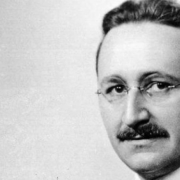Hayek vs Keynes Debate Rebroadcast
Back in the ’30s, at the time of the original Keynes-Hayek debate, Hayek had a solid methodological system that could explain the causes of the recession of the late ’20s and early ’30s, and it’s subsequent gyrations, up and down. The root cause was excessive credit creation by the world’s main central banks, and their fractional reserve private sector mints, the banks. This bank credit was loaned out to businesses who bought extra kit to produce goods and services more efficiently. The boom in producer sectors bid up relative prices for their resources. Higher wages for labour meant more consumption, boosting consumer sectors. This in turn pushed up relative prices in those sectors. Competition for resources bid up prices until no one believed the prices were sustainable — pop goes the mega bubble, and boom turns to bust. This is called the Austrian Theory of the Business Cycle. At the BBC LSE Hayek v Keynes debate, Lord Skidelsky told us that everyone knew it was excess credit that caused this boom, and that this was called the “Treasury View.” This of course is not true; the noble Lord is misinformed. The Treasury View was advanced by members of the Chancellor’s department saying, in short, that for every increase in public expenditure advocated by Keynesian types to alleviate the Great Depression effects, there would be an equivalent reduction in private sector expenditure that would mean that the net effect in the economy is zero. Whilst I hold that this is a valid view, it is not one that gives us the theoretical tools to understand why boom and bust happen in the first place. Mises and Hayek gave us these tools with the Austrian Theory of the Business Cycle. Neither the Treasury View, as expounded by the likes of Ralph Hawtrey, nor the Keynesian view were based on a series of logical deductions from root causes. The best Keynes could offer as an explanation for boom and bust was “animal spirits”. He is Theory Lite in this respect. Unfazed by his shaky foundation, Keynes confidently prescribed how to correct an animal-spirit-induced bust. We are told to spend when the private sector is not spending. Who does this? The government on our behalf. The Treasury View makes clear that it’s futile to tax the private sector in order to spend, so we have the cries from modern day Keynesians to carry on borrowing and spending in order to force a correction . If you haven’t got the correction you desire, you have not borrowed enough! So say the likes of Krugman and Skidelsky, drunk on the intoxicating work of Keynes. The faulty logic than runs underneath this way of thinking is called the “Circular Flow of Income.” This is now bread and butter in any economics text book. One person’s income, when spent on goods and services, becomes another person’s income. Cut one and you cut all. Therefore, a series of cuts or austerity measures is exactly what you should not be doing at a time of bust; you need to keep everyone’s income up. Hayek held that relative prices and income where what mattered, not gross aggregates . If a man has an income of £100 and costs of £90, we can say he has a profit of £10. Then recession hits and he has an income of £85 and still costs of £90, so he is sunk by £5. Thus the aim of the man in question, with income of £85 is to get his costs down to under £75 and restore his profitability. As this is done, the foundations for recovery are laid. Even better, if he can get costs to £74, on lower income and a lower costs base, he is in fact more profitable than in the glorious boom times! In the 5 mins each speaker had in this debate to present their case, some of this came across and some of it did not. Jamie Whyte and George Selgin did a fantastic job at putting forward the case for Hayek. Skidelsky sadly did not represent Keynes very truthfully, for the reasons I have outlined above. Selgin picked him up on various other errors and misrepresentations. This debate is very relevant for today as no doubt we will be told the current market corrections are “Animal Spirits”, and that the answer is further government intervention. The BBC tell us the debate had over 1 million listeners and was in their top 5 podcasts. In all my years studying at the LSE and as a donor to it, I have never seen three lecture theatres full of public and students alike. Not even for visiting Heads of State! This is the debate of our times. I am delighted to say that the program will be re-run, and they expect another 1.5 millions viewers. Our friend at the Mises Institute, Stephan Kinsella, has blogged all the details here. If you want to educate yourself a little more on these matters, or even if you think you are very familiar with all of the issues, the debate is definitely worth a listen. If you can’t wait for the next BBC broadcast, you can find it online as an MP3. Since the original broadcast, the debate has continued online. On the 3rd of August,PrimeEconomics published a list of eight alleged fallacies in the Keynes/Hayek debate, drawing a number of responses, including some from George Selgin. On the same day, Selgin posted his own account of the debate at FreeBanking.org. More recently, on the 18th of August, Selgin took up Skidelsky’s suggestion that “no government has ever achieved a speedy recovery from a recession by clamping down on its spending or reducing its indebtedness”, citing the US recovery from a deep recession in 1920. The following day, Skidelsky published his account of the Keynes-Hayek rematch at Project Syndicate, declaring
Except to Hayekian fanatics, it seems obvious that the coordinated global stimulus of 2009 stopped the slide into another Great Depression.
You can read Selgin’s response at FreeBanking.org. Personally, I look forward to the day when Paul Krugman will come and stand on that same stage where Hayek delivered his famous Prices and Production lectures, and engage in serious debate with Austrian economists. How many lecture theatres would that fill? What global TV audience would it draw? For those at the BBC and for those at the LSE, I think my next Distinguished Hayek Fellowship Teaching Programme event the LSE should be just this debate, and I would be happy to support and fund whatever I can. I repeat, this is the debate of our times. Only someone of the stature of Krugman can represent Keynes, we need to move this debate up and along now.
Related articles
- Hayek vs Keynes at the LSE – John Phelan, 27 July 2011


